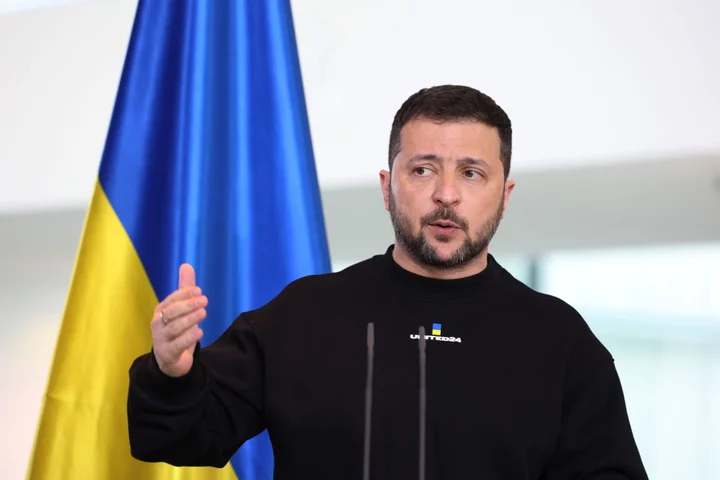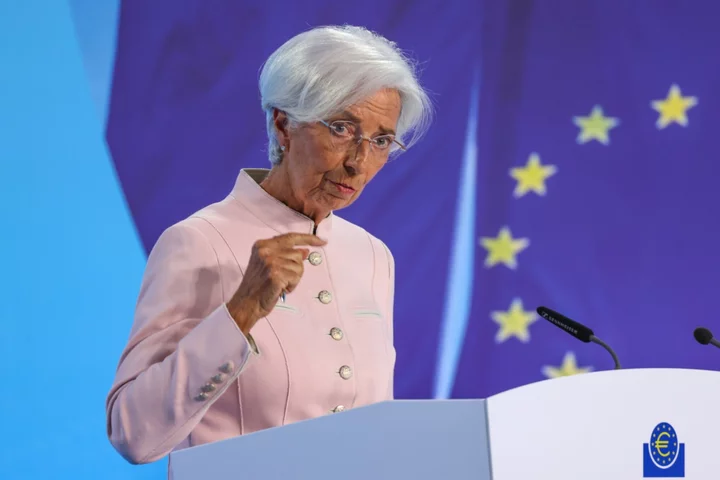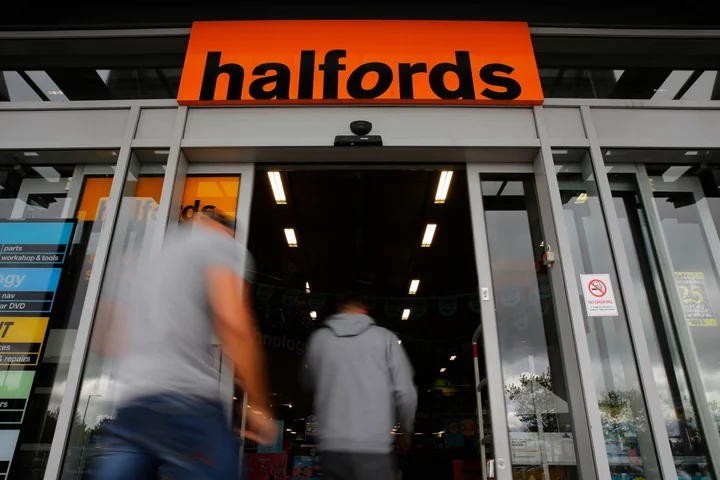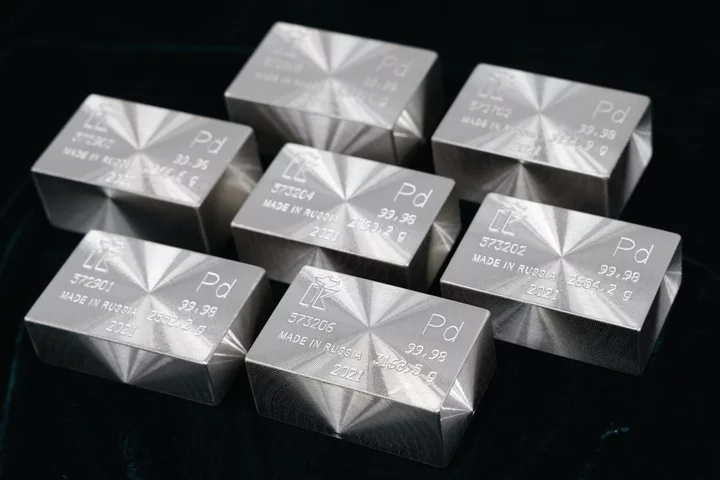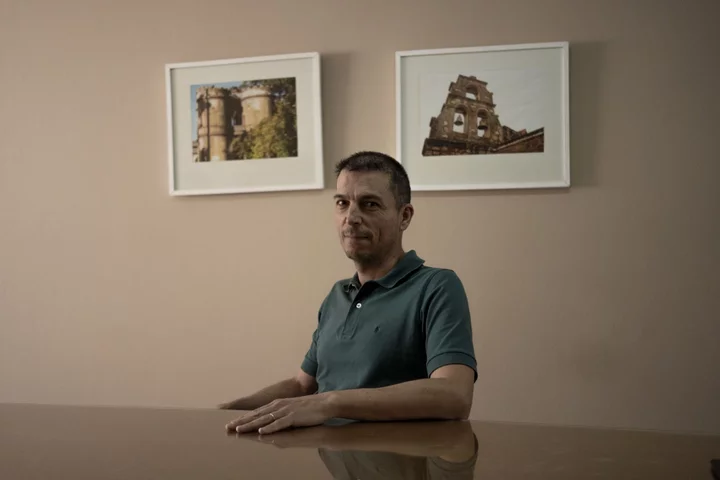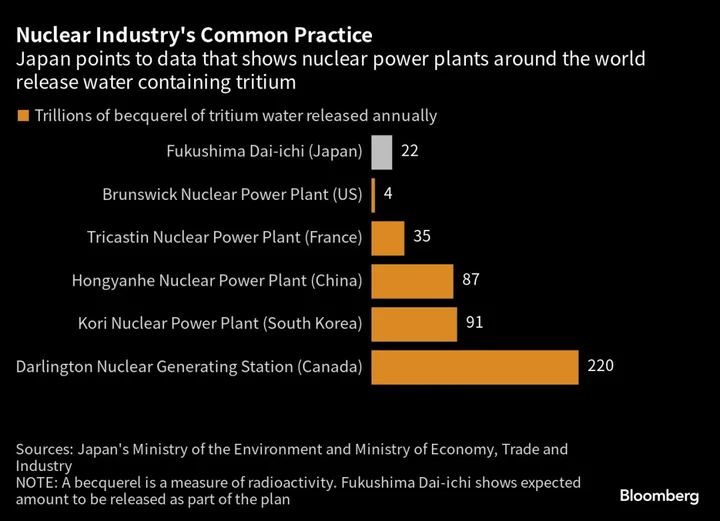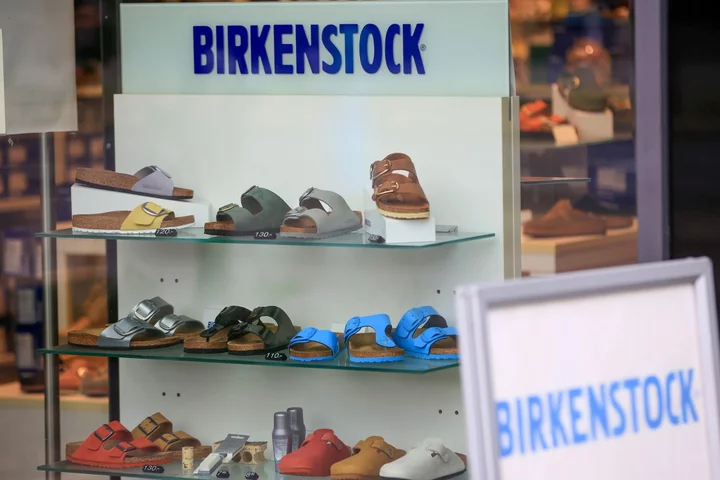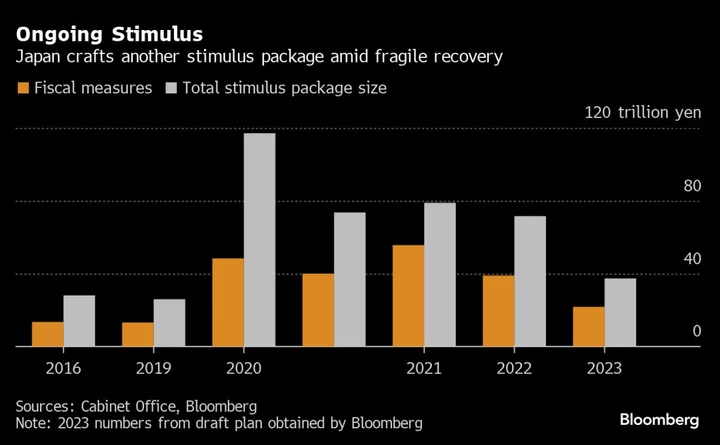UK Prime Minister Rishi Sunak will meet with Ukrainian President Volodymyr Zelenskiy to pledge more weapons such as drones and air-defense systems.
The UK will provide hundreds of air defense missiles and further unmanned aerial systems, including new long-range attack drones, according to a UK government statement.
The visit comes after Zelenskiy met with French President Emmanuel Macron and separately with German Chancellor Olaf Scholz over the weekend.
Key Developments
- UK Pledges Drones to Ukraine as Zelenskiy Makes Surprise Visit
- Putin’s War Revives Russia’s Dark Tradition of Informers
- US Won’t Sanction South Africa Over Russia Arms Row
- France to Provide More Support to Ukraine After Zelenskiy Visit
(All times CET)
G-7 to Strengthen Russia Sanctions Enforcement (1 p.m.)
Group of Seven leaders plan to bolster their coordination in combating the circumvention of sanctions imposed on Russia when they meet in Hiroshima, Japan, later this week.
“The impact of sanctions is highly linked to the quality of the coordination with our partners, be they in the G-7 or beyond,” European Commission President Ursula von der Leyen said during a news conference on Monday.
The EU is working on a new package of sanctions that would close loopholes and hit companies and countries that are helping Russia to obtain sanctioned goods. The bloc could ban goods from going to a certain country if there’s clear evidence of them ending up in Russian territory, von der Leyen said.
NATO Needs to Devise Framework for Ukraine (12:52 p.m.)
NATO allies need to devise “some kind of framework” to prevent Russia from continuing to chip away at European security and re-invading Ukraine after the war ends, the alliance’s chief, Jens Stoltenberg said, declining to provide more details on what that should look like.
“What I can say is that if NATO allies, and especially the big ones, start to issue security guarantees bilaterally to Ukraine, we are very close to Article 5,” Stoltenberg told his predecessor Anders Fogh Rasmussen in a live interview at the Copenhagen Democracy Summit. Article 5 refers to the collective defense commitments allies enjoy once they are full members of NATO.
Stoltenberg said he would push allies to agree to a stronger defense investment pledge and said the goal to spend at least 2% of gross domestic production on defense is “something that should be reached as soon as possible, immediately, without waiting as much as is necessary — the message should be that there’s not another decade.”
Asked about another potential extension to his role, Stoltenberg said he has made it clear he has no other plans than to leave this fall.
Germany to Send More Air Defense Systems to Ukraine (12:20 p.m.)
Germany will provide Ukraine with a total of eight IRIS-T air defense systems, a spokeswoman for the defense ministry in Berlin said at the regular government news conference.
Germany has already supplied two such systems and delivery of the rest will depend on a number of issues including production capacities at manufacturer Diehl Defence GmbH & Co. KG, the spokeswoman added.
Ukraine Says Defense of Bakhmut Continues (10 a.m.)
Russia is pressing Ukrainian troops in Bakhmut, which remains an epicenter of fighting along with the town of Maryinka in the Donetsk region, according to Ukraine’s General Staff.
However, the army managed to advance in the direction of Bakhmut, which is the “first success of offensive actions during the defense of the city,” the Ukrainian military media center said, citing Commander of the Ground Forces Oleksandr Syrskyi.
“Still, it is only a partial success and should be treated as such,” he said, adding that the operation to defend Bakhmut is ongoing.
UK to Announce More Military Aid to Ukraine (8:49 a.m.)
Prime Minister Sunak will also discuss what support Ukraine needs from the international community, both immediate military equipment and long-term defenses, according to a UK government statement.
France to Provide More Support to Ukraine (3:39 a.m.)
France will continue providing political, financial, humanitarian and military support to Ukraine for as long as necessary, the presidential office said, adding the two nations will support efforts to curtail the circumvention of sanctions against Russia.
Macron met with Zelenskiy in Paris on Sunday where the leaders discussed the support required to help end the war. They agreed on the need to increase collective pressure on Russia through new sanctions in order to weaken the country’s ability to wage its illegal war of aggression, the French presidency said in a statement.

